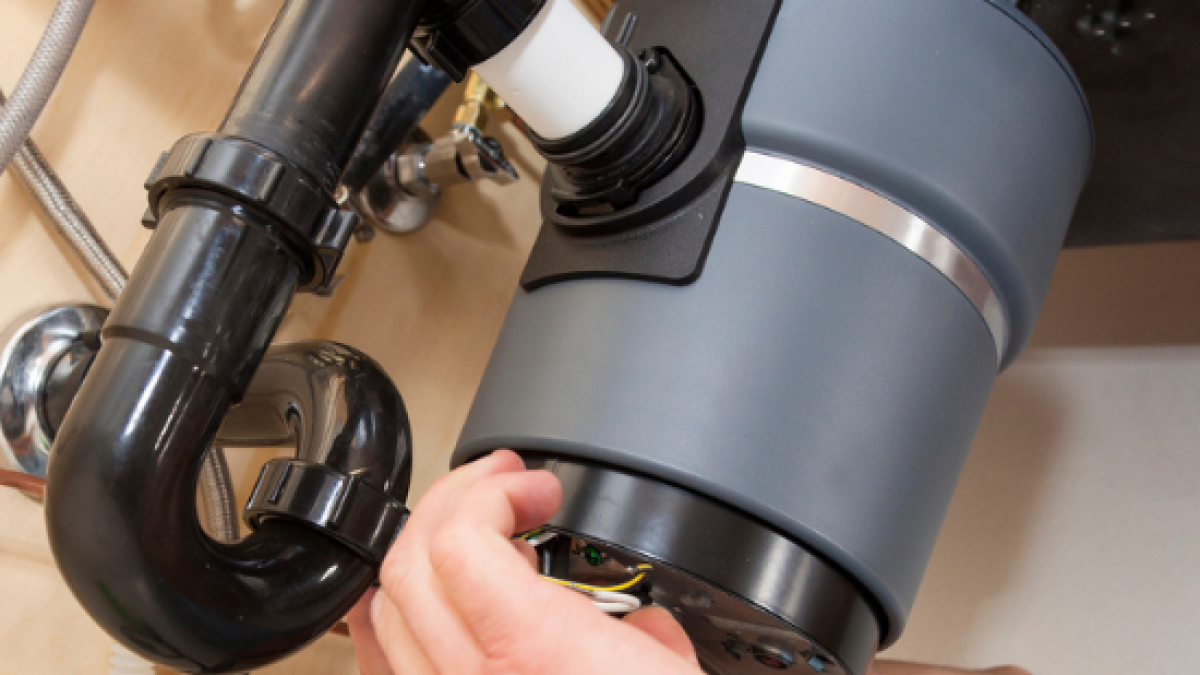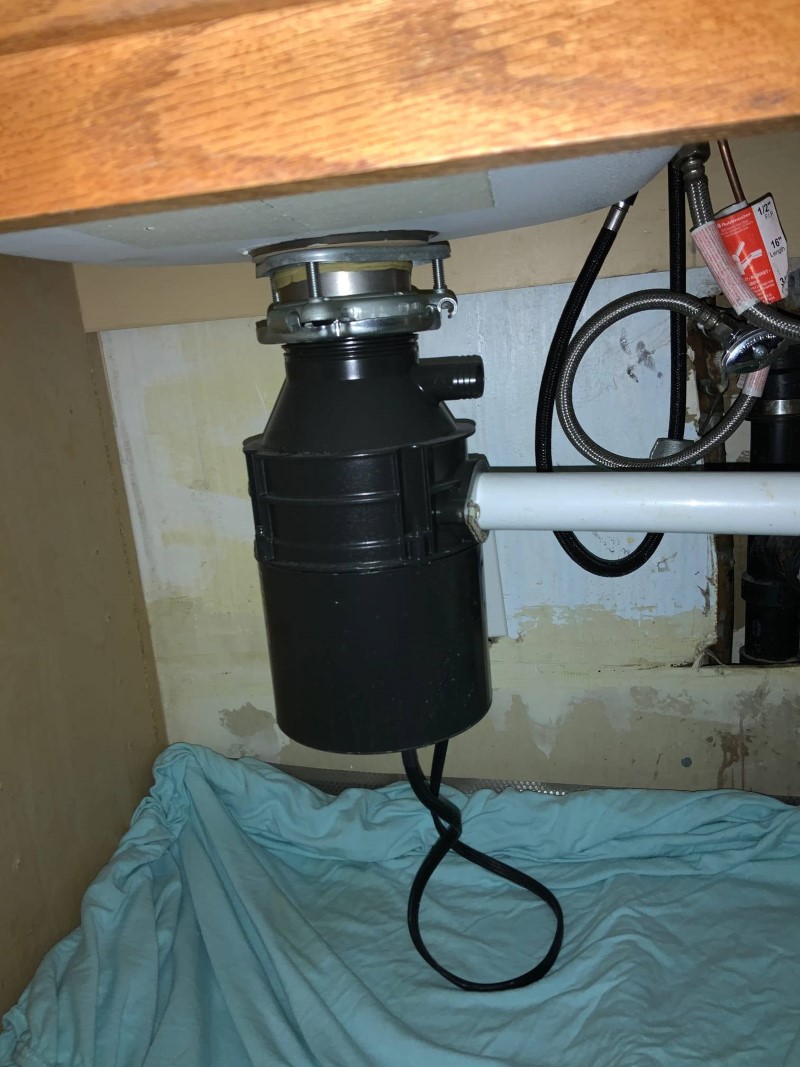Helpful Methods for Fixing a Dripping Garbage Disposal
Helpful Methods for Fixing a Dripping Garbage Disposal
Blog Article
What are your ideas concerning Garbage Disposal Leaking From Bottom?

Waste disposal unit are necessary kitchen area appliances that help in dealing with food waste efficiently. However, a dripping garbage disposal can be an aggravating and untidy issue to deal with. Thankfully, numerous leakages can be taken care of easily with a few straightforward steps. In this article, we will certainly discuss just how to deal with a dripping waste disposal unit effectively.
Introduction
Garbage disposals are mounted under kitchen sinks and are created to shred food waste into smaller sized items, permitting it to pass through the plumbing system quickly. While these gadgets are normally reliable, leaks can occur with time as a result of damage, loosened connections, or damages to the system.
Typical Reasons For Leakages in Rubbish Disposals
Worn Seals and Gaskets
Seals and gaskets play a vital function in preventing water from dripping out of the garbage disposal. Over time, these elements can deteriorate, causing leaks around the disposal system.
Loose Connections
The links between the waste disposal unit and the pipes system can become loose gradually, causing water to leak out throughout procedure.
Fractures or Holes in the Disposal Device
Physical damage to the waste disposal unit, such as fractures or openings in the real estate, can additionally result in leaks.
Determining the Resource of the Leakage
Prior to trying to deal with a dripping waste disposal unit, it is essential to identify the resource of the leakage. This can generally be done through visual inspection or by performing straightforward examinations.
Visual Evaluation
Examine the waste disposal unit system thoroughly for any indicators of water leakage. Pay close attention to locations around seals, gaskets, and connection factors.
Testing for Leakages
One way to check for leakages is by running water through the disposal device and checking for any type of noticeable indicators of leakage.
Tools and Materials Needed for Dealing With a Leaking Garbage Disposal
Before starting the fixing process, collect the needed devices and materials, consisting of a screwdriver, adjustable wrench, plumber's putty, substitute seals or gaskets, and epoxy or patching product for repairing fractures or openings.
Step-by-Step Overview to Taking Care Of a Dripping Garbage Disposal
Shut off the Power
Prior to trying any repairs, make sure that the power to the waste disposal unit unit is turned off to prevent the risk of electric shock.
Locate the Leakage
Determine the exact area of the leak and determine the cause.
Tighten up Connections
Make use of a wrench to tighten any kind of loose connections in between the disposal unit and the plumbing system.
Change Seals or Gaskets
If the leakage is because of used seals or gaskets, remove the old elements and change them with brand-new ones.
Patching Fractures or Openings
For splits or openings in the disposal device, usage epoxy or an appropriate patching material to secure the broken area.
Examining the Waste Disposal Unit After Repair
As soon as the repair service is full, evaluate the waste disposal unit by running water with it to make certain that the leakage has actually been resolved.
Preventive Upkeep Tips to Prevent Future Leakages
To prevent future leaks, it is vital to perform regular maintenance on your waste disposal unit. This includes keeping it clean, avoiding placing non-food products or tough objects down the disposal, and regularly looking for leakages or various other issues.
Final thought
To conclude, dealing with a leaking garbage disposal is a reasonably uncomplicated procedure that can be finished with standard tools and materials. By complying with the steps described in this short article and practicing preventative upkeep, you can keep your waste disposal unit in good working problem and stay clear of pricey fixings in the future.
HERE’S HOW TO FIX YOUR GARBAGE DISPOSAL
WHAT TO DO IF SOMETHING IS STUCK IN YOUR GARBAGE DISPOSAL
If the impeller won’t turn, there’s probably something stuck in the disposal. It could be a steak bone or peach pit, although plumbers report pulling all sorts of inappropriate objects out of disposals, such as bottle caps or aluminum foil. Make sure power to the disposal is off, and look inside to see if you can see the source of the jam.
Never stick your fingers in a disposal. Pull out anything you see with tongs or pliers.
If the disposal still won’t work, it may be time to call a plumber or consider buying a new disposal. GEM Plumbing & Heating is here for all of your garbage disposal needs.
WHAT TO DO IF YOUR GARBAGE DISPOSAL DRAIN IS CLOGGED
Take everything out from underneath your sink and put a bucket or other container under your disposal to catch any water that drains out. Disconnect your disposal from the power supply. If it’s plugged into a wall outlet, unplug it. If it’s hardwired into an electrical box, go to the electrical panel and turn off the breaker for the disposal. Pour ¼ cup of baking soda into the drain, followed by ½ cup of white vinegar. Give the solution a few minutes to fizz and do its work. Look into the disposal with a flashlight to see if you can see an object that might be causing the clog. If you see it, remove it using tongs or pliers. MORE TIPS ON DEALING WITH A CLOGGED GARBAGE DISPOSAL
Never use drain cleaner in a garbage disposal. It can damage the plastic parts inside the disposal. You can also be splashed with the caustic liquid while working to clear the clog. Beware! Never stick your fingers into a garbage disposal. Trust us — not a good idea. In many instances, your dishwasher drains through your garbage disposal. This allows the disposal to grind any large food particles that may be drained out of your dishwasher. There are some jurisdictions, however, where the plumbing code prohibits such a connection. WHAT TO DO WHEN YOUR DISHWASHER DRAINS THROUGH THE DISPOSAL
Run some water in the sink so your plunger has at least a ½-inch of water to create a seal and plunge vigorously up and down several times. You may need to repeat this several times. Run hot water down the drain to clear any residue that remains.

As a fervent reader about Why Is , I assumed sharing that piece of writing was a good thing. Don't hesitate to take the opportunity to distribute this article if you appreciated it. Thanks a lot for your time. Please visit our blog back soon.
Request Service Report this page